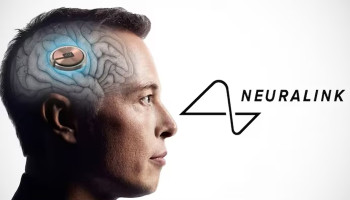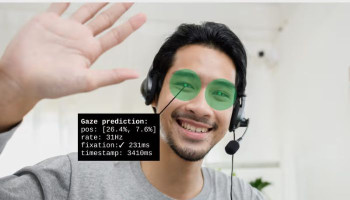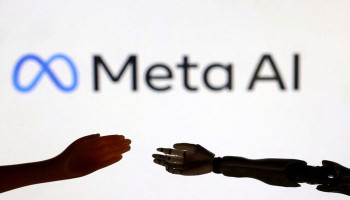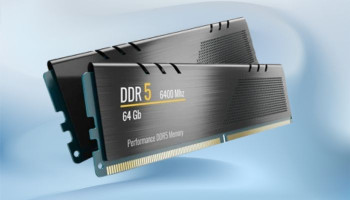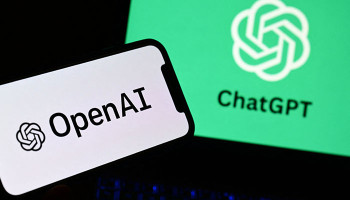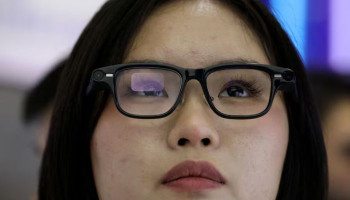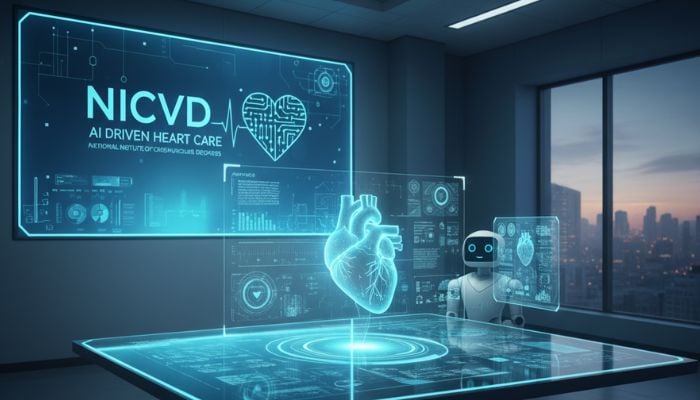
Artificial intelligence (AI) is no longer the future at the National Institute of Cardiovascular Diseases (NICVD); it is now a reality changing how doctors diagnose and treat heart disease in children. Not only does it enhance the ability to detect symptoms earlier, but it also improves and hastens the diagnosis. The technology is ultimately streamlining patient care like never before.
In a city like Karachi, where healthcare services are often overwhelmed by patient loads, AI is crucial to the delivery of healthcare. At NICVD, AI is relieving some of the healthcare burden while increasing the quality of care children with heart disease are receiving.
What does AI mean for healthcare at NICVD?
While speaking to Gadinsider, NICVD Associate Professor in Paediatric Cardiology, Dr Abdul Sattar, simply explains the concept by saying: “AI is teaching computers to ‘think and learn’ in a manner similar to humans. In healthcare, AI does the hard work for doctors by analysing enormous amounts of medical data, for example, scans, lab reports, or patient histories, significantly faster than humans can and often more accurately.
AI is essentially being used by doctors everywhere, from radiology to cardiology to pathology, even in an emergency room, to categorise patients by what is urgent.”
NICVD sees excessive amounts of patients coming in every day and said AI is playing a big part in managing the workload. “In one hospital, there are thousands of patients coming in every day, and we have limited staff, so it can become critical to get a patient diagnosed on time. AI helps us to serve more patients efficiently,” said Dr Sattar.
He stated this is important for cardiac care, as timely and accurate diagnoses can mean the difference between life and death.
Extending AI to remote areas
One of NICVD's most significant initiatives has been partnering with the ChildLife Foundation. This collaboration allows the use of AI technology at 300+ Telemedicine Satellite Centres and Children's Emergency Rooms across Pakistan.
"We have signed an MoU with ChildLife Foundation to deploy AI technology to manage and administer AI technology at its 300+ centres. Using AI technology will allow us to better manage and treat cardiac illnesses in children from rural settings. AI also helps detect symptoms and take a proactive approach in diagnosis so that treatment can begin sooner," Dr Sattar shared in a written communication with Gadinsider.
This initiative has helped lessen the burden families face by providing access to cardiology care, which is often not present in rural areas.
AI in specialised cardiac care
AI is also making a difference in specialised departments within NICVD. "For example, in our Electrophysiology Department at NICVD, we are using AI to help focus on diagnosing and treating patients with heart rhythm disorders. We provide both adult and paediatric electrophysiology services, where AI provides broad support with our specialists in providing timely and accurate care to our patients," Dr Sattar told Gadinsider.
Emphasising that AI will never replace doctors, he said: “AI can never replace doctors. It is always a supportive tool that improves and enhances human expertise, but it cannot substitute the human element. At NICVD, every AI-generated result is cross-checked by professional doctors to ensure accuracy.”
NICVD is also training its staff for the future through workshops and training. "We did some workshops, and some of the practical training with our doctors centred around how AI can help diagnose medical disease, assist with research, and help with overall technical knowledge. This was hands-on training and helped our teams adapt to technology when caring for their patients,” Dr Sattar said.
The hospital is also coordinating with the University of Karachi on a project for an AI-based clinic. "There is a system that will be introduced very soon that can track pulse, heartbeat, and blood pressure and provide a way to easily detect cardiac symptoms," he said.
Despite the connectivity challenges in rural areas, or lack of technical support, NICVD has now embedded AI into nearly 40% of its activities. According to Dr Sattar, the results are impressive, especially for diagnostics and research.
In the future AI will be even more integrated into the healthcare of Pakistan. Reportedly, from 2024 to 2030, the AI healthcare market is predicted to have a global Compound Global Growth Rate (CAGR) of 36.4%. NICVD is showing how Pakistan can implement AI and stay AU in speed with the trends.
By combining AI technology with human expertise, NICVD is building a model of “doctor + AI” healthcare, one that is faster, safer, and more inclusive. It’s not about replacing doctors, but about giving them better tools to save more lives.





